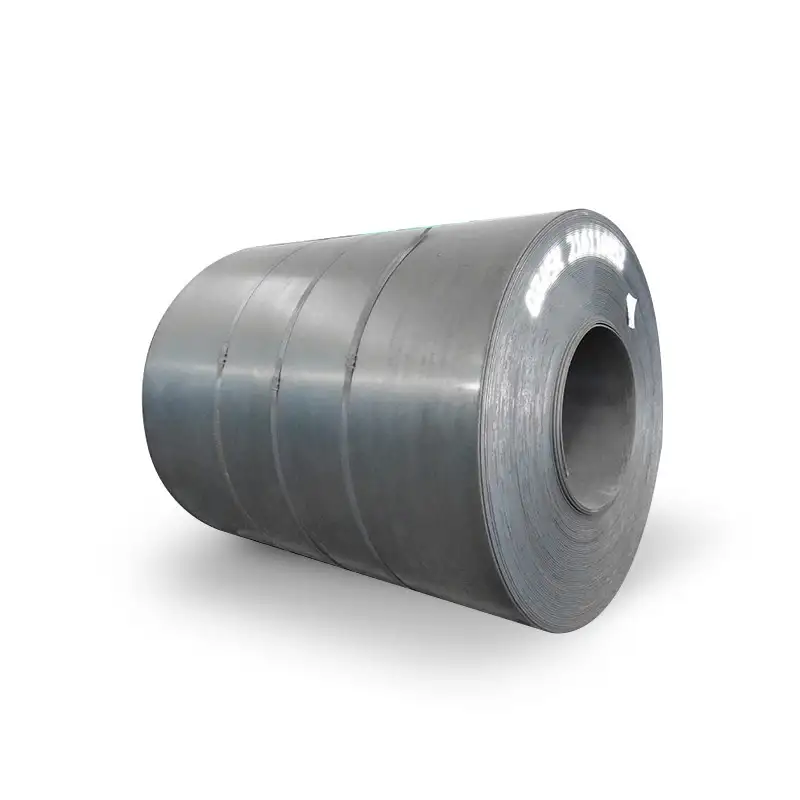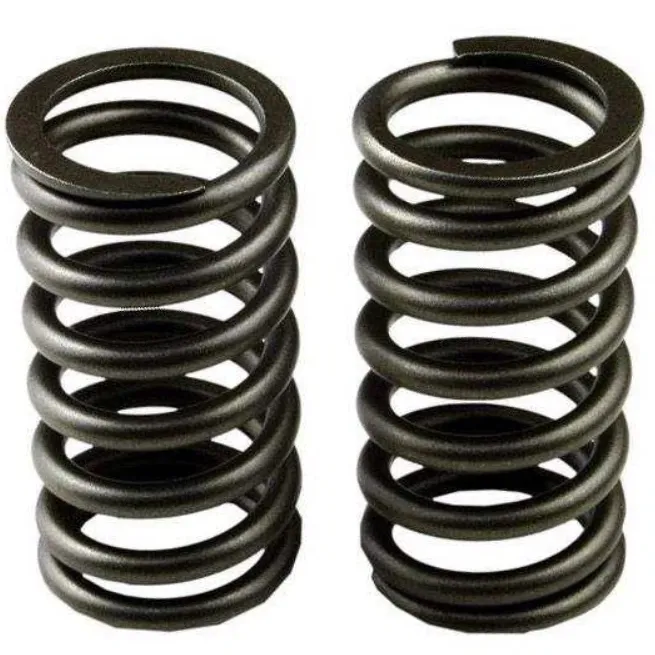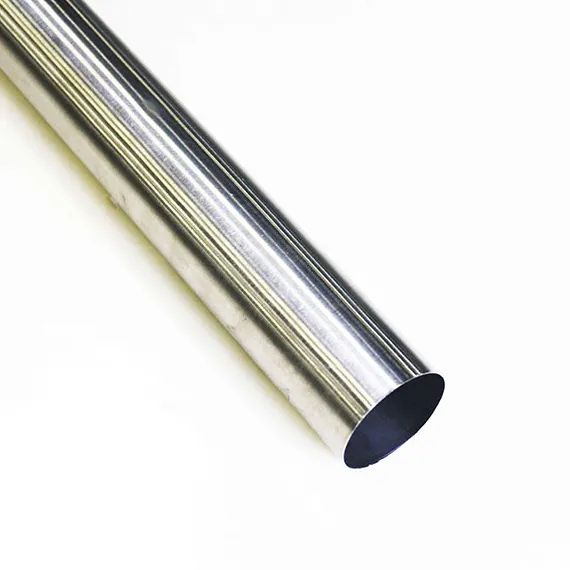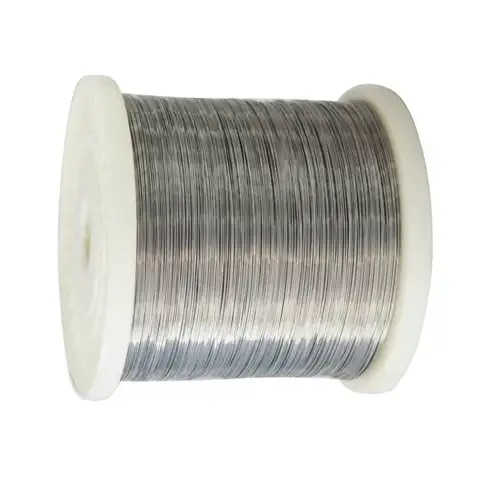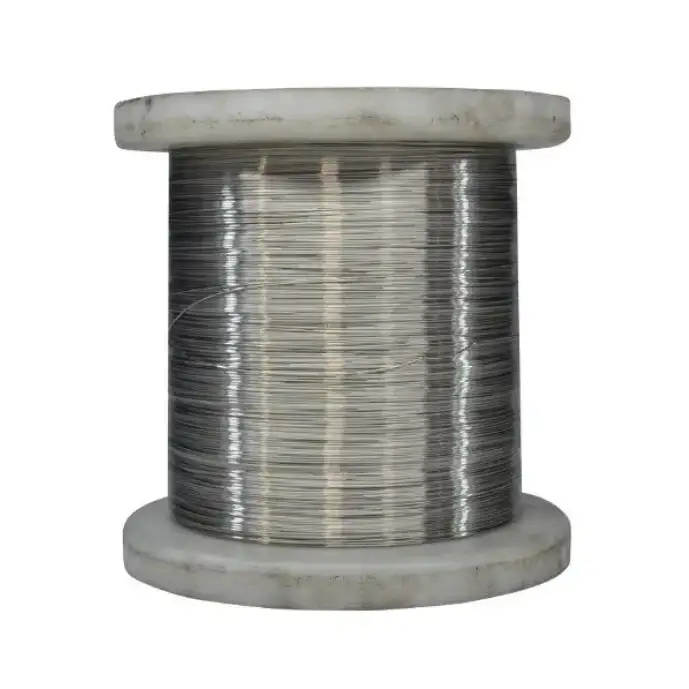API Spec 5L pipeline steel coil is the globally recognized specification for line-pipe carbon steel coils used to make welded or seamless linepipe for oil, gas and water transmission. It defines grades (A, B, X-series), two product specification levels (PSL1 and PSL2), chemical and mechanical limits, and testing requirements; when correctly specified and procured it balances weldability, strength and fracture toughness for safe pipeline service. MWAlloys supplies API 5L certified coils from China with competitive factory prices, stock-ready options, and quick delivery for typical order sizes.
What is API Spec 5L
API Specification 5L is the American Petroleum Institute standard that governs the manufacture and delivery of steel line pipe. It covers both seamless and welded product, plain-end or threaded-end, for oil, natural gas and water pipelines. The standard sets compositional limits, mechanical targets (yield, tensile, and — for PSL2 — impact energy), manufacturing acceptance, marking and documentation requirements so that pipe made from API 5L coils performs reliably under the pressures and environmental demands of pipeline service. The specification is maintained and periodically updated by API’s Tubular Goods committee; the 46th edition introduced technical clarifications and consistent practices that affect manufacture and test requirements.
Short history and the current edition
API 5L evolved from early 20th-century pipeline practice into a formal standard that the oil & gas industry relies on worldwide. Over time it expanded to include higher-strength grades (X-series), introduced PSL1/PSL2 product specification levels (where PSL2 imposes stricter testing and traceability), and broadened coverage to welded and seamless products and pipe end forms. The most recent edition (46th, published by API) harmonizes certain test windows and clarifies requirements for modern high-strength grades used in long-distance and high-pressure pipelines. These updates are important to manufacturers and purchasers because they directly affect test matrices and acceptance criteria.
API grades and PSL1 vs PSL2 (how to choose)
API 5L grades are identified as Grade A, Grade B and then by X-numbers (X42, X46, X52, X56, X60, X65, X70 and higher in some cases). The grade indicates minimum specified yield strength (for example X52 ≈ 52 ksi / ~360 MPa). Two product specification levels exist:
-
PSL1 — baseline requirements suitable for general service; standard chemical and mechanical tests apply.
-
PSL2 — enhanced requirements: more stringent chemical analysis, additional mechanical test requirements including impact testing for more grades, greater NDT and traceability. PSL2 is typical for pipeline projects with elevated safety or toughness needs (e.g., sour service, arctic temperatures).
Selecting grade & PSL: pick the X-grade to match design yield/tensile requirements, and select PSL2 when project specifications call for traceability, enhanced toughness, or when regulatory/owner requirements demand it.
Chemical composition (typical maximum values by grade)
Note: API 5L gives compositional maxima (and sometimes ranges) by grade; actual mill certificates will show measured values per heat and product analysis. The table below presents representative maximums commonly used when specifying API 5L coils (PSL1/PSL2) — use it as a baseline and always verify with the supplier's mill certificates.
| Element | Grade A / B (max, wt%) | X42 / X46 (max) | X52 (max) | X60 (max) | Notes / typical limits |
|---|---|---|---|---|---|
| C (Carbon) | 0.25–0.28 | 0.24–0.28 | ≤0.28 | ≤0.28 | Some grades allow slightly higher C depending on product thickness. |
| Si (Silicon) | 0.40 | 0.40 | 0.40 | 0.40 | Deoxidizer; limit varies by mill practice. |
| Mn (Manganese) | 1.20–1.40 | 1.20–1.40 | ≤1.40 | ≤1.40 | Controls strength and hardenability. |
| P (Phosphorus) | 0.025–0.030 | 0.025–0.030 | ≤0.030 | ≤0.030 | Tight limits for quality. |
| S (Sulfur) | 0.015–0.030 | 0.015–0.030 | ≤0.030 | ≤0.030 | Lower S aids weldability. |
| Nb / V / Ti (microalloy) | trace (ppm) | small additions allowed in higher grades | sometimes added | sometimes added | Microalloying used to raise yield without increasing C. |
| Cu, Ni, Cr, Mo | ≤0.50 (when present) | ≤0.50 | ≤0.50 | ≤0.50 | Often limited or not deliberately added for many X grades. |
Reference note: For engineering-critical procurement always request the supplier’s API 5L mill test certificate and the exact composition table for the specific heat and coil; PSL2 orders will include additional verification tests.
Mechanical properties
API 5L specifies minimum yield and tensile values by grade. The values below are the commonly cited minimums (units in MPa and ksi where useful).
| Grade | Min Yield (MPa / ksi) | Min Tensile (MPa / ksi) | Typical elongation (%) | Impact testing |
|---|---|---|---|---|
| Grade A | ~210 MPa (30 ksi) | 340–380 MPa (50–55 ksi) | ~20–25% | Generally not mandatory |
| Grade B | ~240 MPa (35 ksi) | 370–420 MPa (53–61 ksi) | 20% | Generally not mandatory |
| X42 | ~290 MPa (42 ksi) | ~420–480 MPa | 18–22% | PSL2 may require Charpy V-notch at specified temps |
| X52 | ~360 MPa (52 ksi) | ~450–520 MPa | 16–20% | PSL2: impact tests more common |
| X60 | ~415 MPa (60 ksi) | ~485–560 MPa | 14–18% | Higher grades often demand PSL2 controls |
Important: Exact mechanical requirements depend on the grade, product form (welded vs seamless), and PSL level. For construction design, convert the specified ksi to MPa and check thickness derating that may apply in the standard or project specification.
API Spec 5L: core specification summary
This condensed reference highlights clauses and what they mean in procurement language.
| Clause / topic | What purchaser should specify |
|---|---|
| Grade (e.g., X52) | Select yield/tensile performance required |
| PSL level (1 or 2) | Choose PSL2 for higher testing/traceability |
| Mill tests & certificates | Specify full heat/product analysis and MTC per EN 10204 3.1/3.2 if required |
| Impact test temperature | Provide service temp (e.g., −20°C) if toughness required |
| NDT (UT / RT) | Define acceptance levels and extent (100% UT often used for PSL2) |
| Hardness | If required, specify maximum hardness (HB or HRC) |
| Coatings/lining | Specify FBE/3LPE, cement mortar, epoxy, or bare coil finish |
| Marking & traceability | Request heat number, coil number and batch traceability for PSL2 |
For formal procurement include API 5L edition (e.g., “API Spec 5L, 46th ed.”) on the purchase order and attach project-specific acceptance criteria (weldability, hardness, impact temperature and NDT levels).
What is API 5L material equivalent to?
API 5L linepipe grades are often cross-referenced to regional standards:
-
European (EN / ISO/EN): Many X-grades roughly match strength categories in EN 10208/ISO 3183; consult conversion tables because chemistry and test regimes differ.
-
ASTM: API 5L covers line-pipe service; ASTM A53 or A500 have overlapping uses, but ASTM standards have different testing/acceptance rules. For pressure and pipeline service, API 5L is the expected standard.
Practical note: Do not assume interchangeability without checking the exact chemical and mechanical requirements, impact test obligations, and coating/test needs — many pipeline owners demand explicit API 5L certification.
Coil sizes and weight (typical ranges and calculation)
API 5L coils used to manufacture welded pipe are supplied in hot-rolled strip/coil. Typical coil parameters:
| Parameter | Typical range / example |
|---|---|
| Width | 600 mm — 1,700 mm (common: 1,220 mm / 1,250 mm) |
| Thickness (strip) | 3.0 mm — 20.0 mm for linepipe feedstock (often 4.5–8.0 mm) |
| Coil inner diameter (ID) | 610 mm, 710 mm typical |
| Coil outer diameter (OD) | Depends on weight — up to ~2,000 mm |
| Max coil weight | ~25 — 38 metric tonnes (some stockists list up to 38.64 t) |
| Coil length (m) | Calculated from coil weight, width & thickness: length (m) = (coil weight * 1,000) / (width (m) * thickness (m) * density(7.85 t/m³)) |
Handling advice: heavy coils require certified lifting gear, proper coil crab/splitter for slit operations, and suitable storage. For large welded pipe mills, large multi-t coils reduce changeover but increase handling complexity.
Manufacturing, forming and coatings
-
Manufacture: API 5L coils feed into ERW (electric resistance welded), SSAW (spiral submerged arc welded), or LSAW/LSAW mills after slitting and leveler/flattening. Seamless pipe is made from billet/solid-to-pipe processes and not from coils.
-
Heat treatment: Normalizing or controlled rolling plus accelerated cooling is common for X-grades to achieve required strength/toughness. Microalloying (Nb, V, Ti) allows higher yield with lower carbon.
-
Coatings / linings: Outboard external options: FBE (fusion bonded epoxy), 3LPE, cement mortar, PE; interior linings depend on transported fluid. Coatings must be specified on PO and tested per project/owner spec.
Testing, inspection, NDT and traceability
PSL2 typically requires:
-
Full heat/product analysis and mechanical testing (tensile, and Charpy impact at specified temperatures for many grades).
-
Non-destructive testing: UT (ultrasonic) or RT (radiographic) on welds and sometimes 100% of pipe length depending on spec.
-
Traceability and documentation: heat number, coil number, MTC (mill test certificate) typically to EN 10204 3.1/3.2 levels when requested.
2025 price comparison: China / Europe / USA
Market context (short): Steel prices in 2025 have been affected by raw-material swings, trade measures and regional supply/demand. U.S. hot-rolled coil prices rose in early–mid 2025 amid tariff actions and local mill pricing; China spot coil prices vary with Shanghai futures and domestic policy; European levels generally sit between U.S. and China depending on currency and freight. For API 5L coils specifically, Chinese factory quotations to export customers in 2025 commonly ranged in the lower hundreds USD/tonne FOB while U.S. mill domestics were significantly higher after tariffs and local mill adjustments. Always request a live quote because steel markets move daily.
Representative 2025 price comparison (indicative only — per metric tonne, FOB / ex-works ranges)
| Region | Typical 2025 price range (USD / tonne) — indicative |
|---|---|
| China (factory / FOB coastal) | USD 460 — 800 / t (many export listings & stockist averages in this band; small coils and special grades cost more). |
| Europe (ex-works / CIF) | USD 650 — 1,000 / t (dependent on grade, freight & mill allocation). |
| USA (domestic HRC & linepipe feedstock) | USD 800 — 1,100 / t (short-ton converted) — tariffs and domestic mill pricing push U.S. levels higher in 2025. Reuters reported sharp U.S. HRC price increases tied to tariff actions. |
How to interpret: these are indicative spot / small-order ranges gathered from market sources and supplier listings in 2025. Project purchases should be negotiated with volume discounts, and any CFR/CIF offers should explicitly state coating, packaging, and testing scope. For firm budget planning ask MWAlloys for a dated pro-forma price (including packaging, testing and delivery lead-time) — we issue factory quotes with clear validity windows.
How MWAlloys supplies API 5L coils
MWAlloys is a specialized metal material supplier with factory relationships across China’s plate-and-coil mills. Services for API 5L coils:
-
Factory-direct (100% mill-sourced) pricing — we work with certified mills to secure mill prices and pass savings to buyers.
-
Stock availability — regular stock of common grades (Gr.B, X42, X52) for fast turnaround; typical delivery windows for stocked items are faster than full mill lead times.
-
Certificates & testing — MTCs, chemical/mechanical data and NDT reports per API 5L (PSL1/PSL2) are provided; optional third-party inspection available.
-
Export readiness — sea-worthy packing, insured shipments, and export docs for EU/US buyers.
-
Value services — slit-to-width, flattening, temporary storage and expedited shipment options for urgent mill feedstock needs.
If you’d like, MWAlloys can provide a sample MTC and a live quote (include grade, PSL level, coil width/thickness, quantity and delivery port).
FAQs
-
Q: Is API 5L the same as ASTM A53?
A: No. They overlap in some uses but are different standards with different test requirements; pipeline projects usually call out API 5L explicitly. -
Q: When should I specify PSL2 instead of PSL1?
A: PSL2 for higher traceability, mandatory impact testing, and additional NDT — typical for critical pipeline segments or owner requirements. -
Q: Can I make seamless pipe from coils?
A: No. Seamless pipe comes from billet or solid-to-pipe routes. Coils are feedstock for welded pipe (ERW, SSAW). -
Q: What is a practical coil weight to quote?
A: Many suppliers quote coils from 20–38 t maximum; 25 t is common — check mill max and shipping limits. -
Q: Do high-strength X-grades require different welding procedure?
A: Often yes — higher strength and lower toughness margins require qualified WPS and control of heat input and preheat/ PWHT as specified in project welding codes. -
Q: How is impact test temp determined?
A: It’s a design/project requirement tied to lowest service temperature; PSL2 requires impact testing at specified temperatures for many X-grades. -
Q: Are there standard coatings for API pipe?
A: Common external coatings: FBE, 3LPE, cement mortar and PE; internal linings depend on fluid. Specify thickness and adhesion test criteria on PO. -
Q: How current are 2025 price quotes?
A: Steel prices change frequently; use the table above only as a starting range and request live quotes and validity windows. -
Q: Can MWAlloys provide third-party inspection?
A: Yes. on request we arrange TPI (third-party inspection) at mill and pre-shipment. -
Q: What documentation accompanies PSL2 shipments?
A: Full mill test certificate (MTC), heat/product analysis, mechanical test reports, NDT reports, and traceability records; additional third-party certificates can be arranged.
Summary & purchasing checklist
Summary: API 5L coils are the standard feedstock for welded pipeline manufacture. Choose grade and PSL level to match design loads and environmental needs, verify chemical and mechanical properties from the mill certificate, and factor regional market dynamics into total landed cost.
Quick procurement checklist:
-
Specify API 5L edition and PSL level on PO.
-
State the exact grade (e.g., X52) and required impact test temperature (if any).
-
Request mill MTC and NDT reports; for PSL2 demand full traceability.
-
Confirm coil dimensions (width, thickness, coil weight, inner diameter).
-
Ask for a dated pro-forma with packing, test scope, and delivery lead time (MWAlloys issues factory quotes with clear validity).

